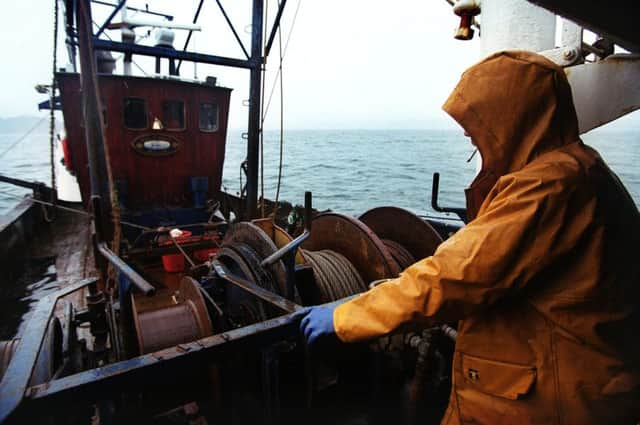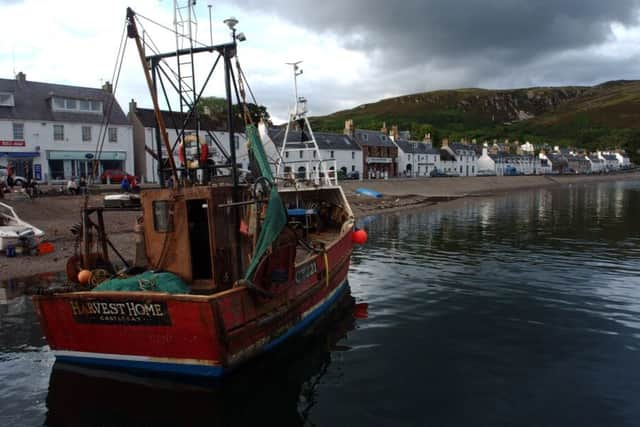Scottish fishing industry could be '˜Brexit bargaining chip'


Fishermen hope to avoid a repeat of 1972, when the industry was widely considered to have been “sold down the river” to secure Britain’s entry to the then European Economic Community.
UK-registered boats landed 708,000 tonnes of seafood, worth £775 million into ports in the UK and abroad in 2015.
Advertisement
Hide AdAdvertisement
Hide AdScottish vessels accounted for 62 per cent of the quantity of landings by the UK fleet - more than double the English fleet.


“The problem with fishing is it’s not very muscular in terms of the national economy,” said Bertie Armstrong, CEO of the Scottish Fishermen’s Federation (SFF), which promotes the collective interests of fishermen’s associations north of the border.
“It’s worth less than half a per cent north and south of the border in terms of GDP. But for coastal communities it is absolutely vital, as well being crucial for efficient, sustainable food production.”
The SFF views Brexit as an opportunity to reset fisheries policy in the UK, after decades of the deeply unpopular common fisheries policy set by EU ministers.
“Post-Brexit, the UK will become a coastal state fully in charge of the sustainable harvesting of the fish out of our waters,” continued Armstrong. “That’s normal - it’s what Iceland, Norway and the Faroe Islands already do.


“Ministers at Holyrood and Westminster must agree we will not be traded away or exchanged in the Brexit discussions.
“Our nervousness is based on the experience of 44 years ago, which is why we’re trying to make as much noise as possible.
“Fishing is not the same as most other economic sectors impacted by Brexit. It will lead to a seismic change - the return of our exclusive economic zone, 200 nautical miles. A patch half the size of the northern continental shelf under international law becomes our waters.”
Advertisement
Hide AdAdvertisement
Hide AdSpeaking at First Minister’s Questions on Thursday, Nicola Sturgeon said she shared the concern of those in the fishing industry.
“From official papers, we know that the UK Government has previously considered fishing to be ‘expendable’,” the First Minister said.
“It sacrificed the fishing industry in exchange for wider interests and I do not think that betrayal will be forgotten by those in the fishing industry or in the north-east of Scotland more generally.
“That is why I take no comfort from the prospect of a UK-wide framework on fishing.”
Fishermen do not view Brexit simply as an opportunity to land more catches.
“We want a fit-for-purpose fisheries management system,” Armstrong continued.
“The common fisheries policy process is not reasonable. It is subject to coodecision and the exclusive competence rests with the European Union. Codecision means 28 ministers make up one half of the decison making process - and half of the countries they represent don’t fish. So they want to apply pressure on fishing nations for non-fishing matters. Nothing gets done quickly.
“That will change unless the Government trades it away and decides to stick to some of the old system.”
Advertisement
Hide AdAdvertisement
Hide AdA spokeswoman for the Department for Environment, Food and Rural Affairs said it was working closely with the fishing industry on a future package, but added that until the UK leaves the EU, current arrangements remained in place.
“Our fishing communities are immensely valuable, and leaving the EU is a real opportunity to review fisheries management and ensure fair access to quota,” she said.
“We continue to be Europe’s leading advocate of sustainable fisheries and will be working hard in upcoming negotiations to secure the best possible deal for all our fishermen – both now, and for the future.”